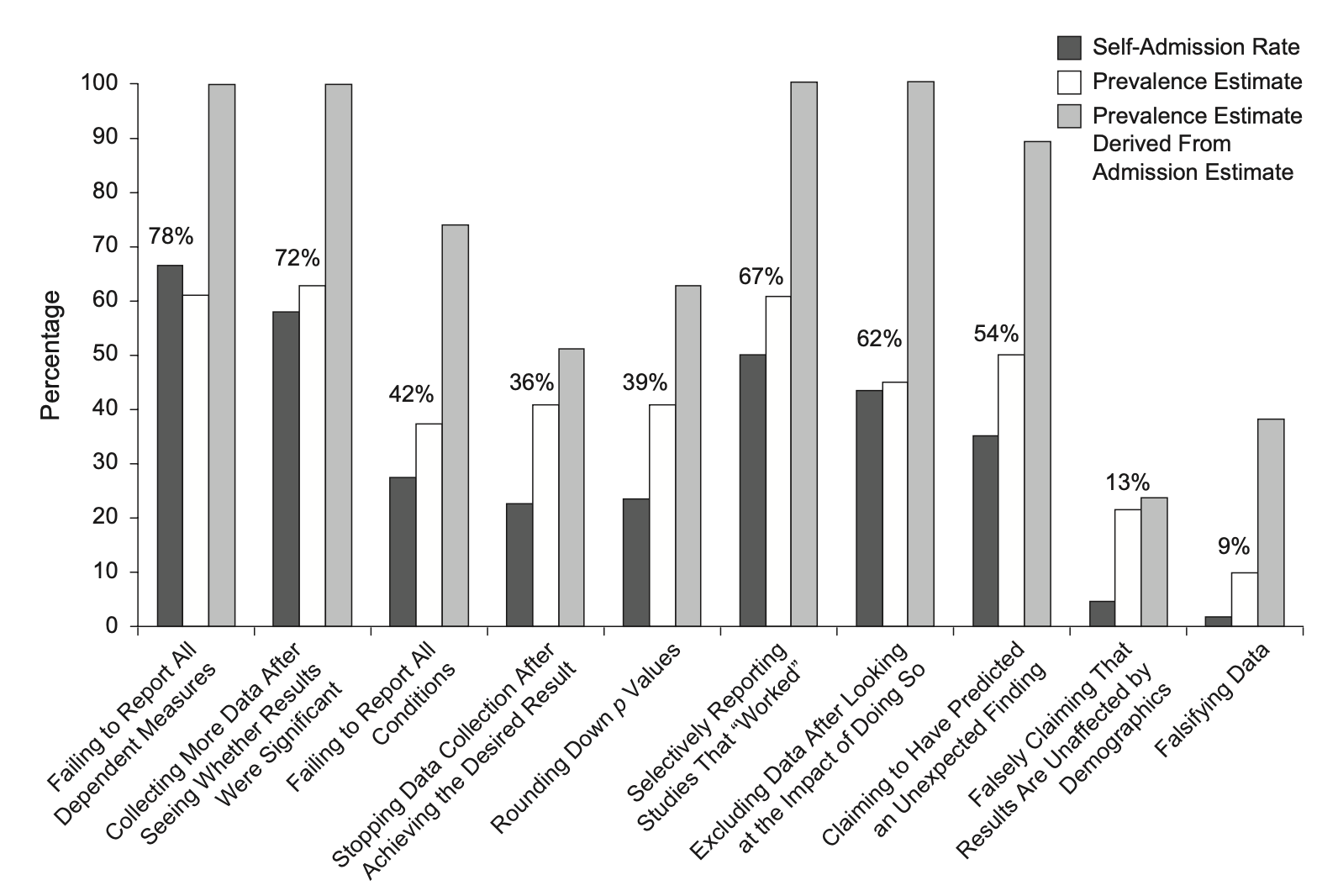1.2 Questionable scientific practices
In the 2010s, disciplines such as psychology, economics, or the biomedical sciences were engulfed by a turmoil of distrust and lack of credibility. Although the Open Science movement is not new and it is at the core of the scientific method, a scientific reform movement emerged to inform on questionable scientific practices (John, Loewenstein, & Prelec, 2012). Synchronically, a heated debate emerged to find solutions to the credibility crisis; a crisis that was triggered by the lack of openness, transparency, and replicability (Spellman et al., 2017).
Questionable Scientific Practices
- Failing to report all dependent measures
- Collecting more data after seeing whether results were significant
- Failing to report all conditions
- Stopping collecting data earlier than planned because one found the result that one had been looking for
- Rounding down p values selectively reporting
- Selectively reporting studies that “worked”
- Excluding data after looking at the impact of doing so
- Reporting an unexpected finding as having been predicted from the start
- Falsely claiming that results are unaffected by demographic variables (e.g., gender) when one is unsure (or knows that they do)
- Falsifying data

Figure 1.2: Prevalence of questionable research practices (John, Loewenstein, \(\&\) Prelec, 2012)